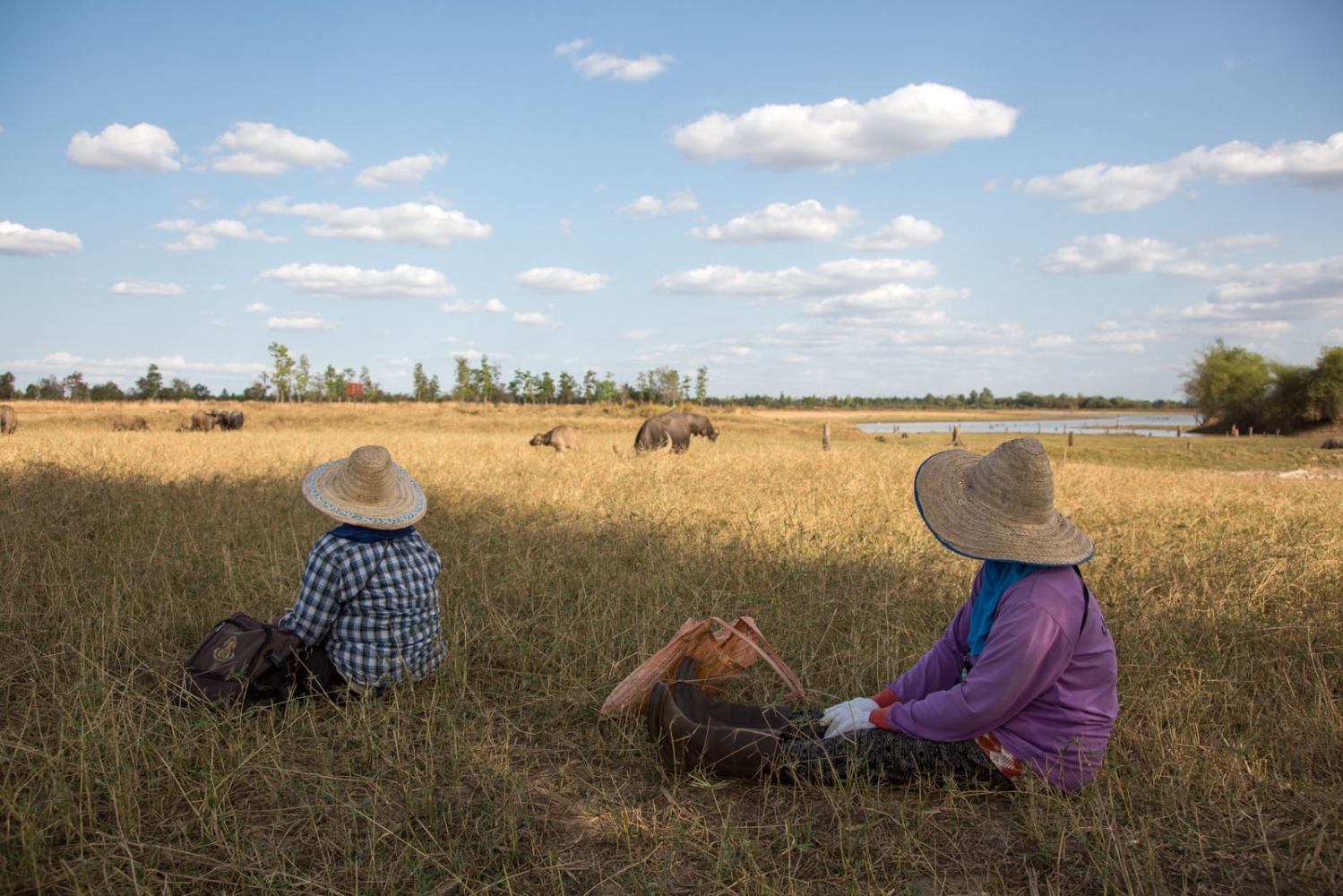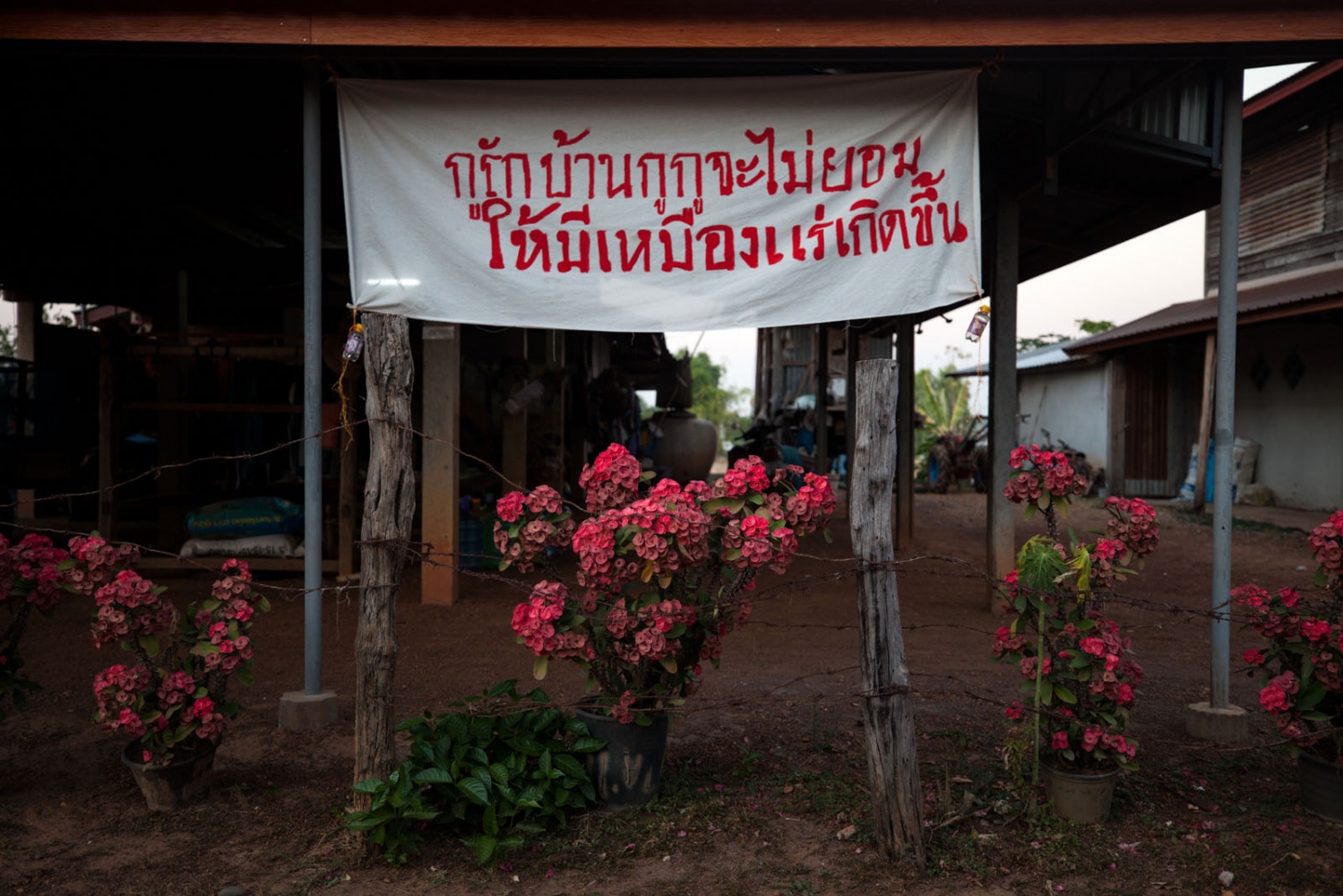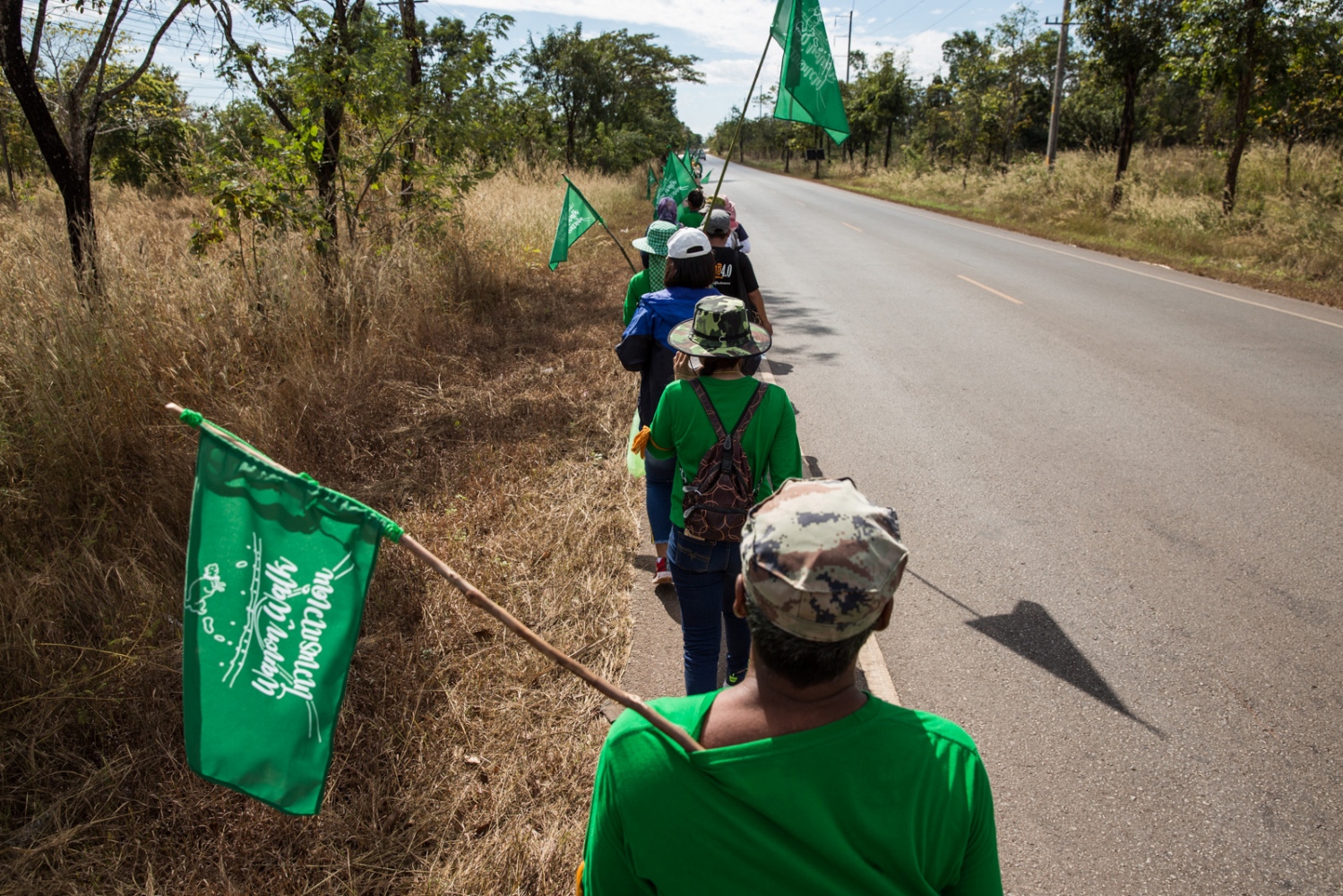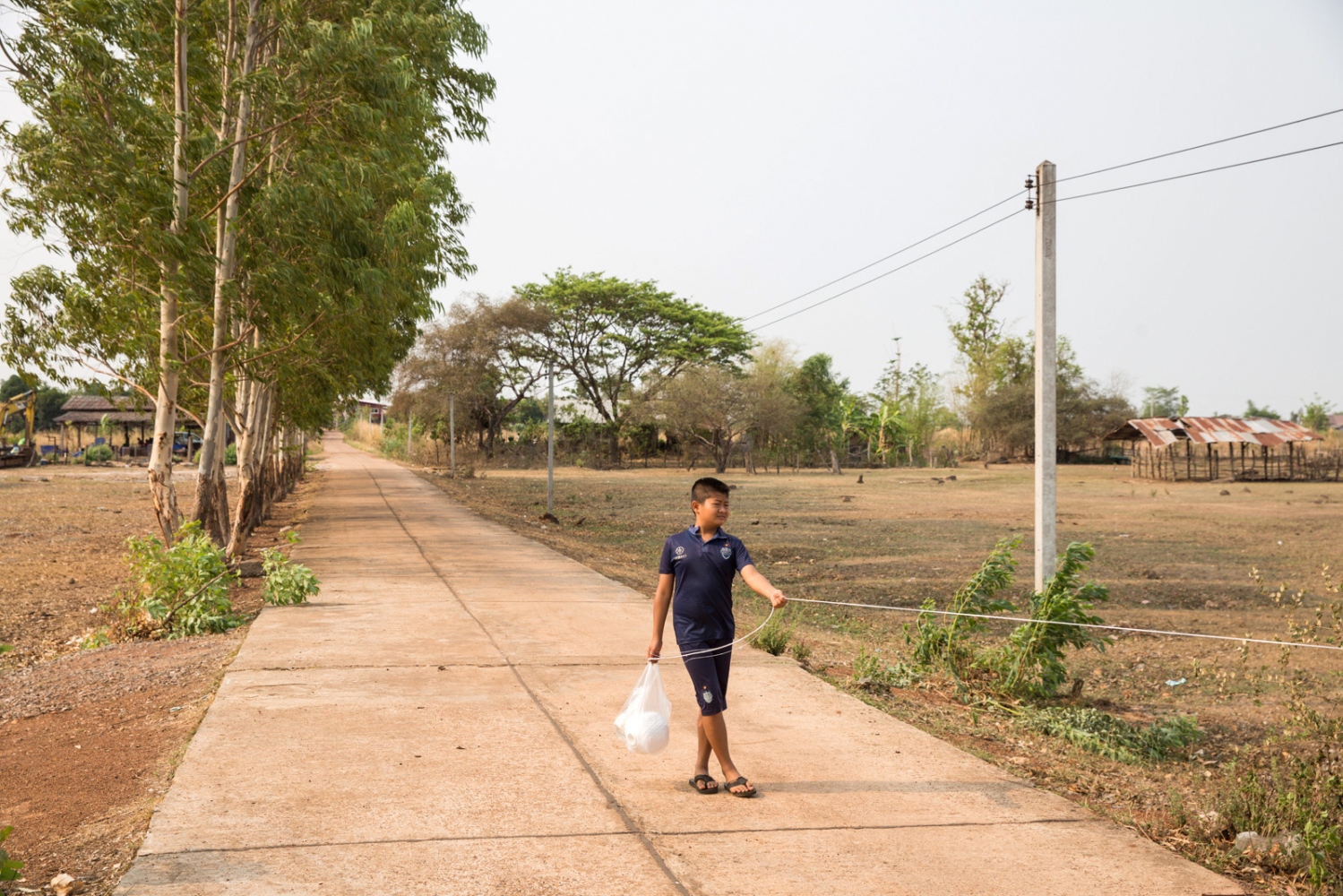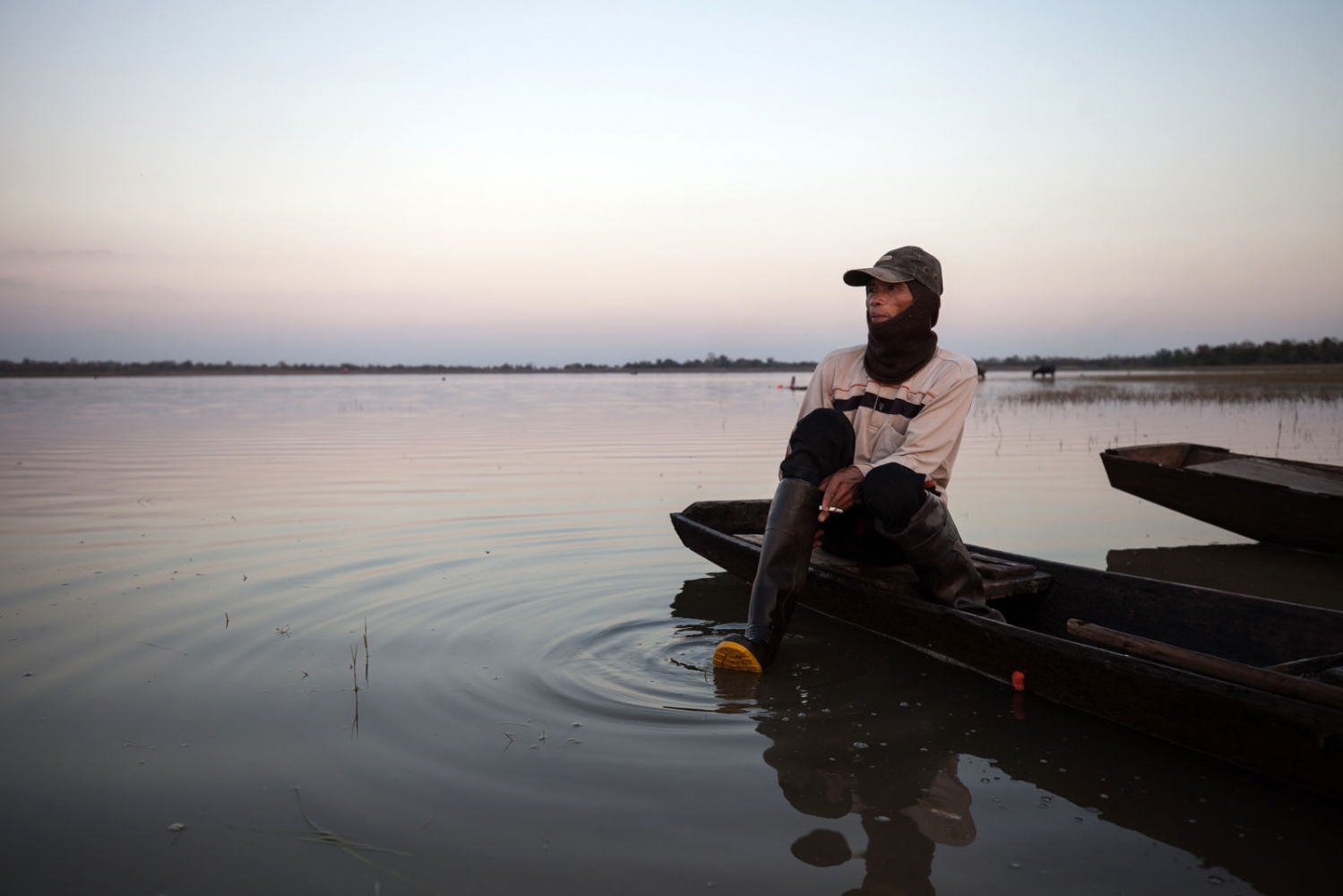Under the vast swathes of green rice paddy, deep below the ground of Northeast Thailand lie enormous deposits of potash and for decades, mining companies have been eyeing this potash potential, an ore rich in potassium chloride that provides the primary ingredient in the production of agricultural fertilizers.
The first foreign company, from Canada, to begin the process of exploration arrived some 20 years ago in the neighbouring province of Udon Thani. Despite having quietly passed an Environmental Impact Assessment and gaining a mining license, as soon as the local villagers were informed the opposition was so strong that even today not an ounce of potash has been removed and exploration markers stand rusty and bent.
In 2015, a Chinese company called China Ming Ta Potash Corporation received the rights to explore the potash mining potential of a province neighbouring Udon Thani called Sakhon Nakhon. The company had 5 years to test what was below on 12 mining plots that encompassed 18,700 hectares of land and included 82 villages in the district of Wanon Niwat.
Again, the resistance was fierce and after receiving advice the community of Wanon Niwat formed an environmental group and began pressuring the company to cease all mining practices.
Able to mass an opposition of thousands in half an hour this community environmental group makes sure that any mining activity, even the moving of equipment, is met by a wall of local people, over 80% of which are women, in the groups matching green tops and wide-brimmed farmers hats.
The villagers have a right to be concerned. This fertile area of land has cultivated rice for generations and sits amongst important watersheds and river tributaries. Part of the land is seasonally flooded forests and is a delicate and important ecosystem that has been sustainably managed and utilized by the communities who gather food and other resources from them.
The production of potash produces vast amounts of salt as a waste product and it is this, in an already salty region, that the locals say will ruin their main drinking water source, the Huay Thong Lake, that also is the main water source, not only for villages but also a town of over 120,000 people.
Now with less than a year left of the company’s mining license the concerned villagers and their environmental group are ramping up the pressure fearing a renewal in the mining rights by staging mass protests. In December 2018, they held the Wanon Walk in which around 200 villagers walked from their community to the provincial capital of Sakhon Nakhon 85 kilometres away, closely followed by police, members of the military and intelligence agencies. Taking 6 days, villagers of all demographics walked every day, stopping only to eat and sleep at local Buddhist temples until they reached their ultimate goal of Sakhon Nakhon University grounds.
In reaction to the villager’s opposition the company has filed criminal and civil lawsuits against nine individuals for defamation and loss of income as a result of their opposition to the exploration drilling sites.
The license of the potash company expires in 2021 and so the local people are keeping up the pressure to make sure that the Thai Government does not renew the company license.
Also by Luke Duggleby —
Sign-up for
For more access
For more access

